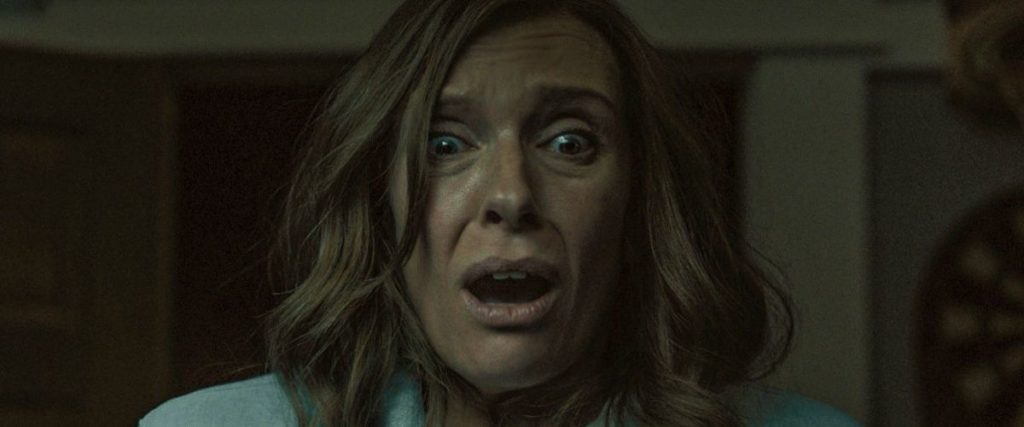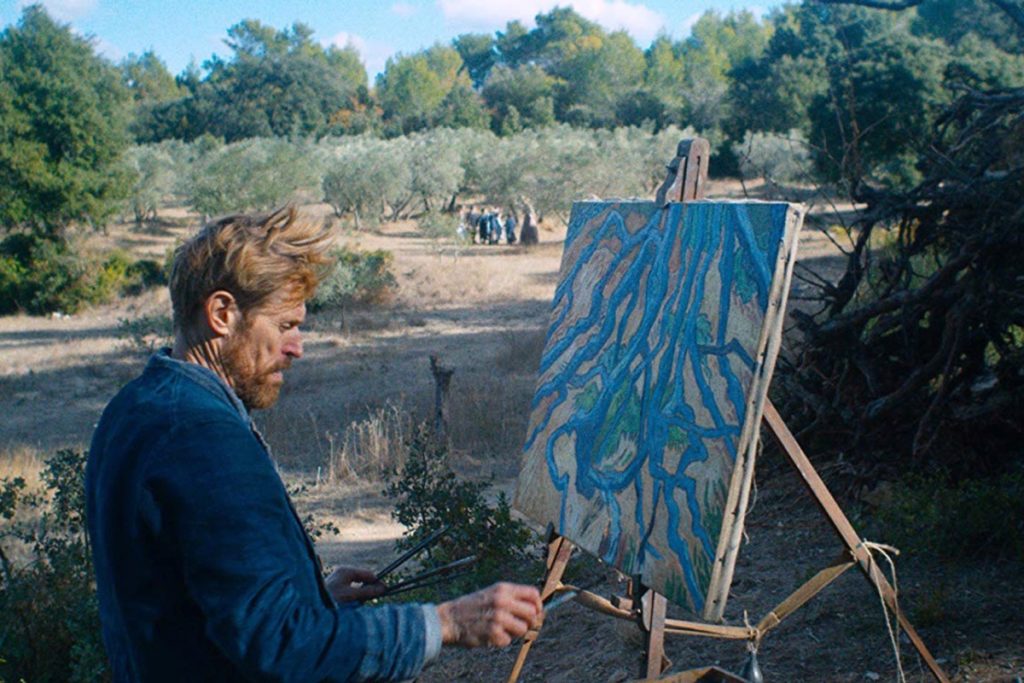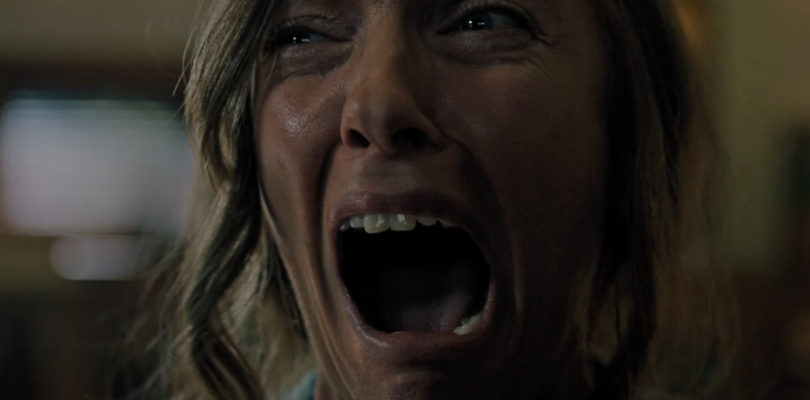By Noel Vera
First published in Businessworld 1.18.19
Not much a list of the best of 2018 as it is a list of titles that best expressed the anger of 2018–not so much a Best list as a Hate list
From where I’m standing it was a fearful year an angry year, a hateful year, a roller-coaster ride, a terror-filled plunge, a horror show.

Horror as a genre felt irrelevant–what can be more frightening than the evening news?–except where it refracted anxieties already out there (which come to think of it is one way good horror happens). John Krasinski’s A Quiet Place started strong with a monster-enforced insistence on silence (shhh–or else) but stumbled along the way; Ari Aster’s Hereditary was good–very good–for at least the first half, basically domestic drama as horror, till it decided to do a clumsier version of Rosemary’s Baby. Steven Soderbergh’s Unsane–cleverly shot on cellphone–had a clever opening premise: that asylums can have you unwittingly committed to milk your health insurance (the latter half alas devolved into yet another stalker flick). Panos Cosmatos’ Mandy is perhaps the most skillfully wrought of the bunch but how many times must we remake Ford’s The Searchers by way of Scorsese’s Taxi Driver? Lynne Ramsay’s You Were Never Really Here isn’t quite as obviously funny but there was wit to her camerawork her elliptical staging, and subtler lunacy to her protagonist’s affection for the vocal stylings of Charlene.
Maybe the picture that spoke clearest to me though was David Gordon Green’s meat-and-potatoes Halloween—not so much for the horror as for the horrific effects of trauma stemming from physical and mental abuse, years afterwards.
The genre for all its stumbles did better overall than science fiction. Steven Spielberg’s Ready Player One was arguably the most interesting SF release in Hollywood arguably the fleetest most inventive work the director’s done in recent years and yet all that sturm und drang could only prove there’s a limit to special effect-heavy SF movies. Damien Chazelle’s First Man was arguably not science fiction exactly–though it depicted the use of technology with reasonable accuracy–but an interestingly introverted look at an interestingly introverted man (my big gripe being that it didn’t look or feel introverted enough). Give me rather Michael Almereyda’s Marjorie Primewith its digital underplayed in favor of theatrical effects its musings on memory and emotion its suggestion that stored personalities are the ghosts that haunt the margins of our technological future. Our dramatized response to science (my thrown-together definition of the genre) seemed less relevant–or is the word I’m looking for ‘urgent?’–in 2018 and yes I’m aware Ryan Coogler directed a movie that qualified (barely) as SF and a major studio churned out supersized examples of the genre. To which I have to say: give me back the Coogler who made Fruitvale Station–that Coogler gave us more substance and sustenance than all of Marvel last year or any number of years.
Dramatically speaking Alfonso Cuaron’s Roma was more memory film than anything else–beautifully shot, with an unsparing view of wayward husbands and neglectful boyfriends. Barry Jenkins’ If Beale Street Could Talk was good, though a scene where two families mean to celebrate a young woman’s pregnancy (but don’t) betrayed a comic and dramatic potential the rest of the film doesn’t quite match; what the film did have (fortunately) is Jenkins’ visual and aural poetry, seasoned lightly with James Baldwin’s prose. Better yet was Steve McQueen’s eloquent brutally spare Widows —not so much a heist film as a film about women seizing what they lost–not their husbands, their sense of independence.
If I had to choose one drama though I suppose it would be Hirokazu Kore-eda’s Golden Palm winner Shoplifters–which extends the premise of his Nobody Knows (children adrift in the margins of Japanese society) into the less merciful realm of public scrutiny and societal inquiry.
Documentaries seemed more palatable last year, if only because they mean to talk to us straight, no chaser. Morgan Neville’s Won’t You Be My Neighbor?was a moving enough account of Fred Rogers but is really a way of mourning the death of civility of our sense of community. Tim Wardle’s Three Identical Strangers was his funny bizarre ultimately sad take on the issue of nature vs. nurture, tinged with not a little trace of child abuse. Michael Moore’s Fahrenheit 11/9 was a satiric sketch of Trump’s rise to the White House a poignant glimpse at the lower-to-middle class folk who rose to oppose him.
If we’re talking nonfiction (more or less) Clint Eastwood’s The Mule(fictionalized account of an old man recruited to become a drug cartel’s most successful smuggler) was fairly entertaining until you read the real mule’s biographical sketch, which could have been a shaggy dog comedy under the hands of a more eccentric filmmaker (Jonathan Demme anyone?). Gus Van Sant’s Don’t Worry, He Won’t Get Far on Foot worked with more interesting material (a paraplegic cartoonist who transmutes his condition into comic gold) and achieves a more interesting tone pitched between rueful irony and melancholy regret.

My choice for best biopic of the past year though has to be Julian Schnabel’s heedlessly gorgeous At Eternity’s Gate–not sure we needed yet another filmed biography of Van Gogh after Vincente Minnelli, Robert Altman, Maurice Pialat among others took a crack at it but on recent viewing why yes–yes we apparently do. At the very least we have a new Schnabel film that plays with POV shots on a subject the director has more than passing knowledge of (he’s also a celebrated artist); at most we have a visually amazing picture, one of the best-looking films of the 2018.
Animation? Mary and the Witch’s Flower was arguably warmed-over Studio Ghibli and still more charming than all of Pixar and Disney combined (throw in that Spider-movie with all those ridiculous Spider-wannabes and that ‘Ralph bakes the internet’ or whatever that was). Wes Anderson’s Isle of Dogswas about as witty and inventive as animated films get, with an intricately detailed wondrously crafted vision of next-generation Japan. A case of cultural appropriation / cultural insensitivity? Maybe but putting that aside it was also Anderson being willfully hermetic, insisting on creating sealed-off aquarium realms and only once in a while making sly commentary on conditions in the outside world–in this case too sly for me to pick up.
Arguably my favorite was Nora Twomey’s unreasonably beautiful The Breadwinner, unreasonable because how could and why would she make such a stunningly visual film about such an ugly subject (the society-sanctioned abuse and repression of women in a wartorn country)? The film itself of course is her eloquent answer.
Comedies? Bo Burnham’s Eighth Grade was (as with most good comedies) funny and painful if visually unmemorable. Amando Iannucci’s The Death of Stalin dramatized or rather satirized the power struggles that arise from a tyrant’s untimely passing (think a handsomer more intelligent dead-as-a-doornail Trump) to hilarious and ultimately chilling effect (the best comedies also sprout fangs towards the end). Peter Farrelly’s Green Book was yet another crude sentimental oddcouple road movie a Driving Miss Daisy with genders and races shuffled; but Don Shirley as estranged from his own race as he is from white America–a conceit questioned by Shirley’s own family–actually brought something fairly new to the weary genre. Jason Reitman’s Tully was a visually undistinguished realization of an imaginative Diablo Cody script, sketching the odds that mothers face today. Yeom-Iyeok and Yeon Sang-ho’s Psychokinesis–not just one of my favorite comedies but hands down my favorite superhero movie of the past year–posited a dad so desperate to do right thing by his estranged daughter he gains superpowers along the way; both the pathos and humor are irresistible.
Spike Lee’s BlacKkKlansman pushed an outrageous premise–a black man joining the KKK–as far as it could go, the most outrageous aspect of the picture being it’s a (mostly) true story. Boots Riley’s Sorry to Bother You in turn took outrage and pushed it to near-apocalyptic dimensions, with white corporate America going so far as to create their own monstrous-looking minority group (Are the stopmotion effects too clunky? 1) The clunkiness of stopmotion has a charm all its own and 2) Who cares as long as the ideas are imaginatively realized?). Perhaps my favorite of the year though is Yorgos Lanthimos’ The Favourite, a savage satire on power that revolved around a grotesque spoiled brat of a head-of-state, both exploited and exploiting the subjects around her (Now where have we seen that before?).
I can never catch as many Filipino films as I want but the ones I did manage to see startled with their range and visual variety–even something as narratively and politically incoherent as Erik Mattti’s BuyBust featured deftly staged n shot action sequences. Keith Sicat’s Alimuom–made for the To Farm Film Festival–relocated the Filipino farmer in a world combining Blade Runner and Mad Max: Fury Road; state-of-the-art (for the Philippines anyway) digital effects were surprisingly impressive though not as impressive as the focus on seed banks and corporate monopolies–an uncommon subject in today’s SF movies, but one that needs discussing. Denise O’Hara’s Mamang was a lyrical surprisingly funny retelling of her filmmaker uncle Mario O’Hara‘s close relationship with his mother–one thinks of Leo McCarey’s Make Way for Tomorrow, a ’30s Hollywood classic about the elderly where comedy cuts through the sentiment and sentiment gives the comedy dramatic heft. Mike De Leon’s Citizen Jake turned the spectre of the Marcos regime coming back into yet another monstrous father figure, one of many that loom over the director’s films.
But if from all the films I saw last year I had to pick titles that best expressed how I felt about that year, I would pick five:
Lee Chang-dong’s Burning drew simmering class resentment and complacent class privilege together in an uneasy pas de deux that ultimately ignites. Possibly the slowest most simmeringly fascinating neo-noir I’ve seen in recent years.
Did I mention Taxi Driver? Writer-director Paul Schrader’s First Reformedfiltered that script’s anger and decades-old Searchers premise (lone vigilante on a quest to rescue or revenge) through the austere style of Robert Bresson, then–of all the variations mutations perversions of the subgenre I’ve seen through the years–finds unexpected sanity-restoring grace in comedy not unlike Yasujiro Ozu’s.
Khavn’s Balangiga: Howling Wilderness in depicting the ferocity of the Balangiga massacre with lowbudget imagination humor style is arguably the best onscreen depiction to date of Duterte’s bloody war on drugs.
Orson Welles’ The Other Side of the Wind not only pulled off the neat trick of being the latest from a filmmaker thirty years dead it also managed to say caustically unflattering things about the industry he both loved and hated–in masterfully breathtaking visual aural rhythmic terms.
Panahon ng Halimaw (Season of the Devil) was Lav Diaz’s take on the Philippines then and now conflating Marcos and Duterte both in a single freakish figure, a gibbering incoherent idiot full of sound and fury. It’s a musical without music, with almost nothing by way of entertainment or conventional narrative tropes to help the bitter medicine go down–the anger so pared away and purified it burns onscreen for four steady hours.
Looking back I realize this wasn’t so much a list of the best of 2018 as it is a list of titles that best expressed the anger of 2018–not so much a Best list as a Hate list. Hate of the present conditions, hope of future change, determination to bring about that change whatever it takes.
